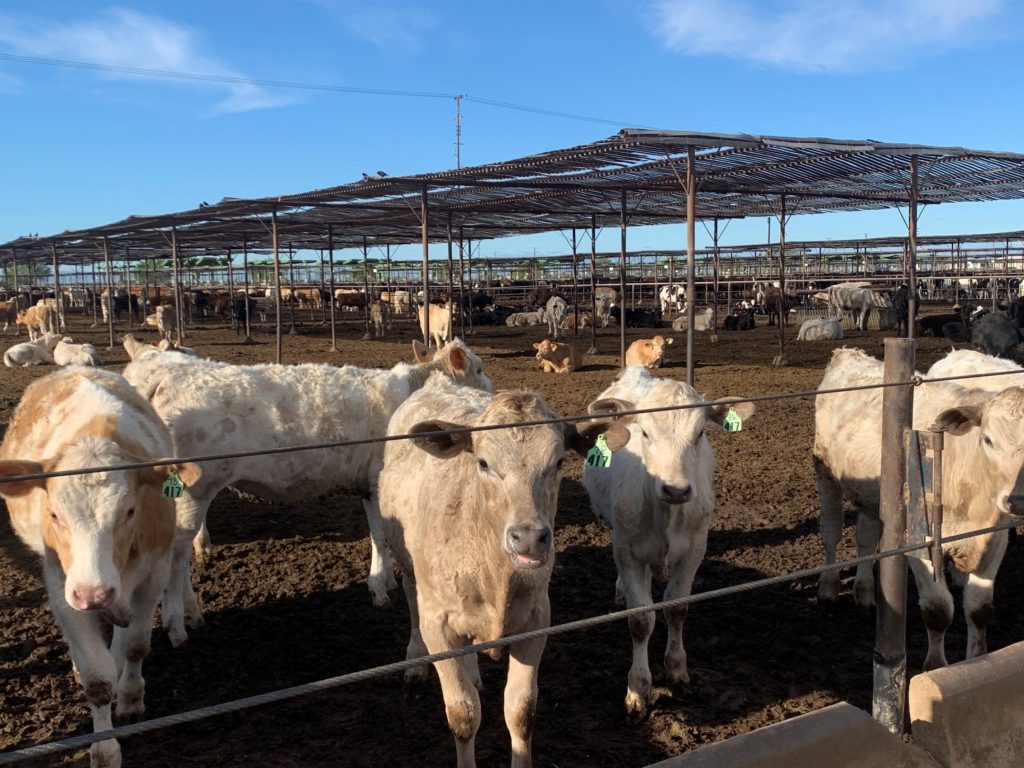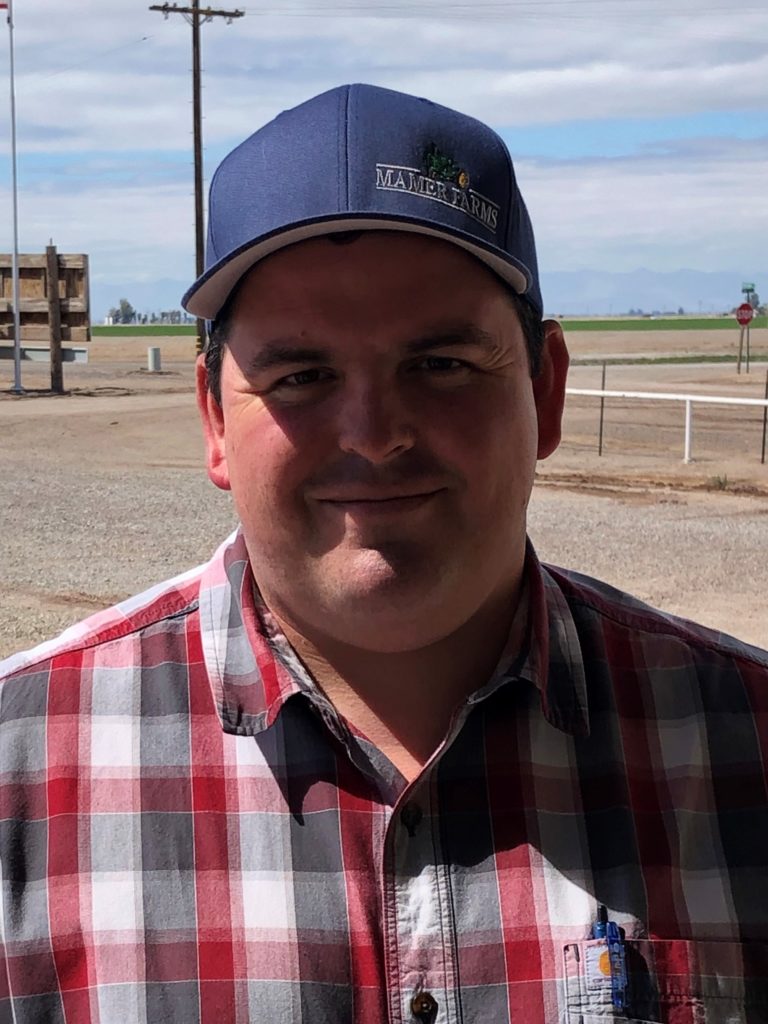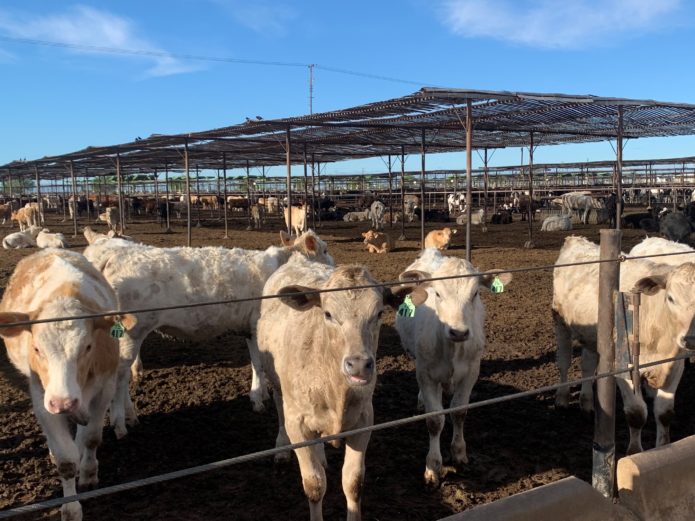
Photo courtesy of Mesquite Cattle Feeders
During this period of shelter in place directives in light of the Coronavirus, essential businesses must continue operations to meet the needs of society. The Imperial Valley cattle industry is among those essential services.
Imperial-San Diego Currents reached out to Joe Dan Cameron, manager of Mesquite Cattle Feeders of Brawley, to discuss how the Valley’s cattle industry has reacted to the Coronavirus and the safety steps his operation has taken.

Photo courtesy of Mesquite Cattle Feeders
Mesquite Cattle Feeders is one of nine cattle operations in the Valley, and Cameron said they are all following safety standards established under the California Cattlemen’s Association and California Cattle Feeders Association—which means following common sense measures during this challenging time with the goals of protecting workers, keeping the animals healthy, and ensuring a safe product reaches consumers. And the efforts are working.
He pointed out cattle operations must continue at full staffing—a feed yard cannot slow down.
“The company runs seven days a week, twenty-four hours a day,” said Cameron, whose company is owned by three Imperial Valley families, the Camerons, Presleys, and Brauns, all longtime agricultural families in the Valley. “It’s our responsibility to take care of these animals to the best of our ability in the most humane way possible.”
Mesquite Cattle Feeders maintains 35,000 heads of cattle, with the beef shipped to One World Beef in Brawley and Sunland Beef in Tolleson, Arizona. Ultimately, the beef they produce is shipped out not only to feed the nation but the world as well. With that in mind, food safety is critical, and Cameron said it is for that reason it is crucial to maintain full operations.
“Everybody is still coming to work,” he said. “What we do is really important in providing food to consumers and serving as an integral part of the food chain.”
While safety is always a top priority, it has become even more so under the new norms created by the Coronavirus.
For his operation, Cameron said, that has meant making sure every employee, no matter what their role is in the company, has gloves and masks. Additionally, Mesquite has provided extra hand washing stations throughout the feed yard.
Lunches and breaks are now done on different shifts to reduce the number of employees in the break area at any time in line with social distancing guidelines.
Already high cleaning standards have been increased. Every piece of equipment within the operation is continuously disinfected. Every time a worker is about to enter a vehicle, they must first wipe down the interior with disinfectants.
At Mesquite, they’ve also reduced the number of workers assigned to any single piece of equipment to ensure only one worker has contact with the same piece of equipment daily with the idea of reducing exposures.
“The guys really have come to understand the importance of these steps,” Cameron said, and they are being vigilant in their efforts, he added.
One other step being taken is to make it possible for employees to take more sick time if necessary.
“We are really stressing to employees that if they are sick, they need to stay home,” Cameron said. “If they have used their sick leave already, we are providing additional paid sick leave days as needed.”
While the virus has brought some economic challenges to the cattle industry as restaurants have shut down or limited operations to take-out service, Cameron said the goal of the industry is to continue to do everything it can to ensure the country has access to food, which means ensuring the grocery stores and restaurants still in operation maintain their supply of meats.
“We are still here,” he said. “People who work in feed yards are doing everything we can to produce a safe product for consumers.”
He added it is important to ensure people have a sense of comfort that food supplies will continue through these challenging times, and that the food they purchase is safe.
To that end, he said, the proper care of the cattle is crucial.
“We strive to be the best caretakers of the animals we can be,” Cameron said. “In these challenging times, we are trying to provide a safe and abundant food source for the consumers while also doing our best to provide a safe, healthy, comfortable, and humane home for the animals in our care.”
